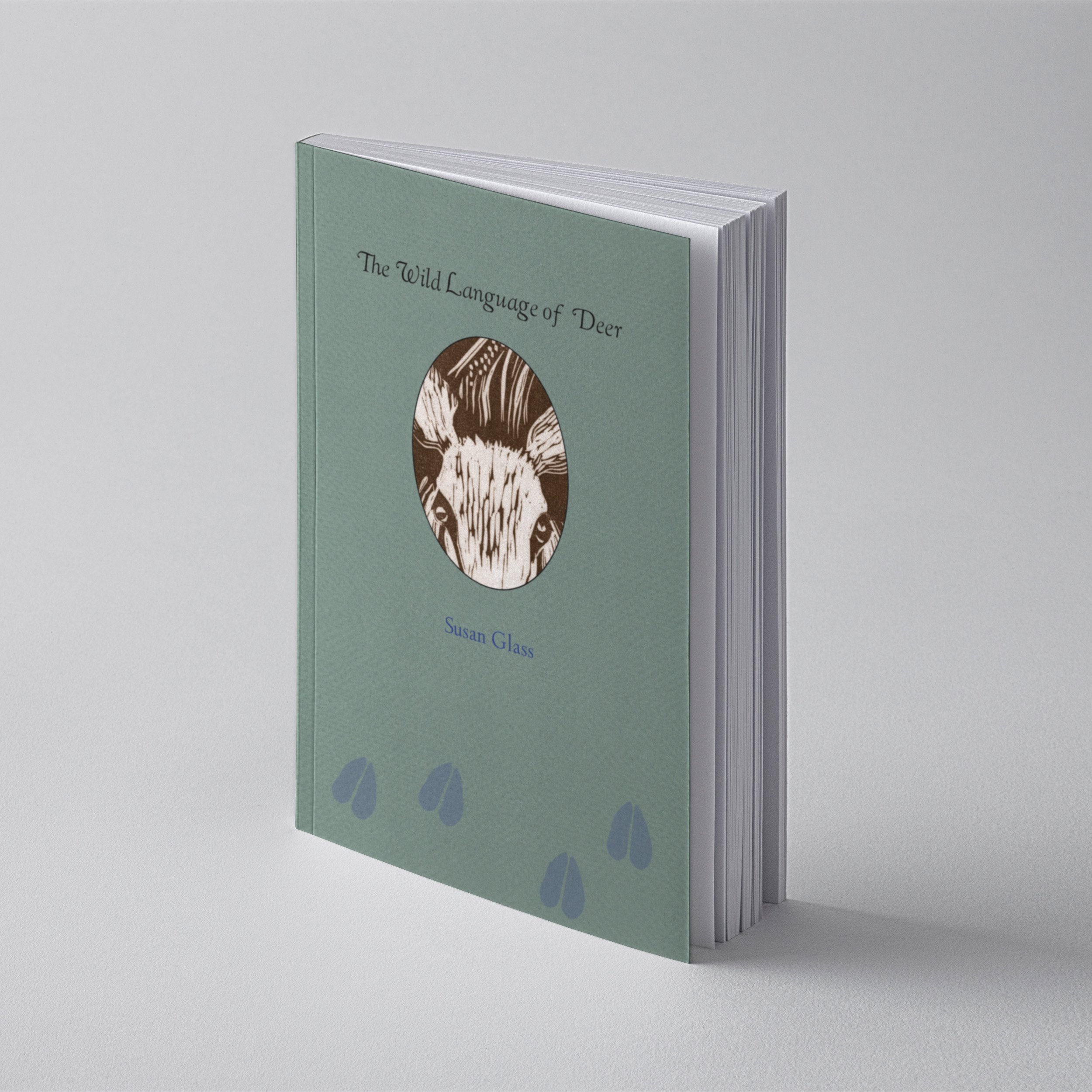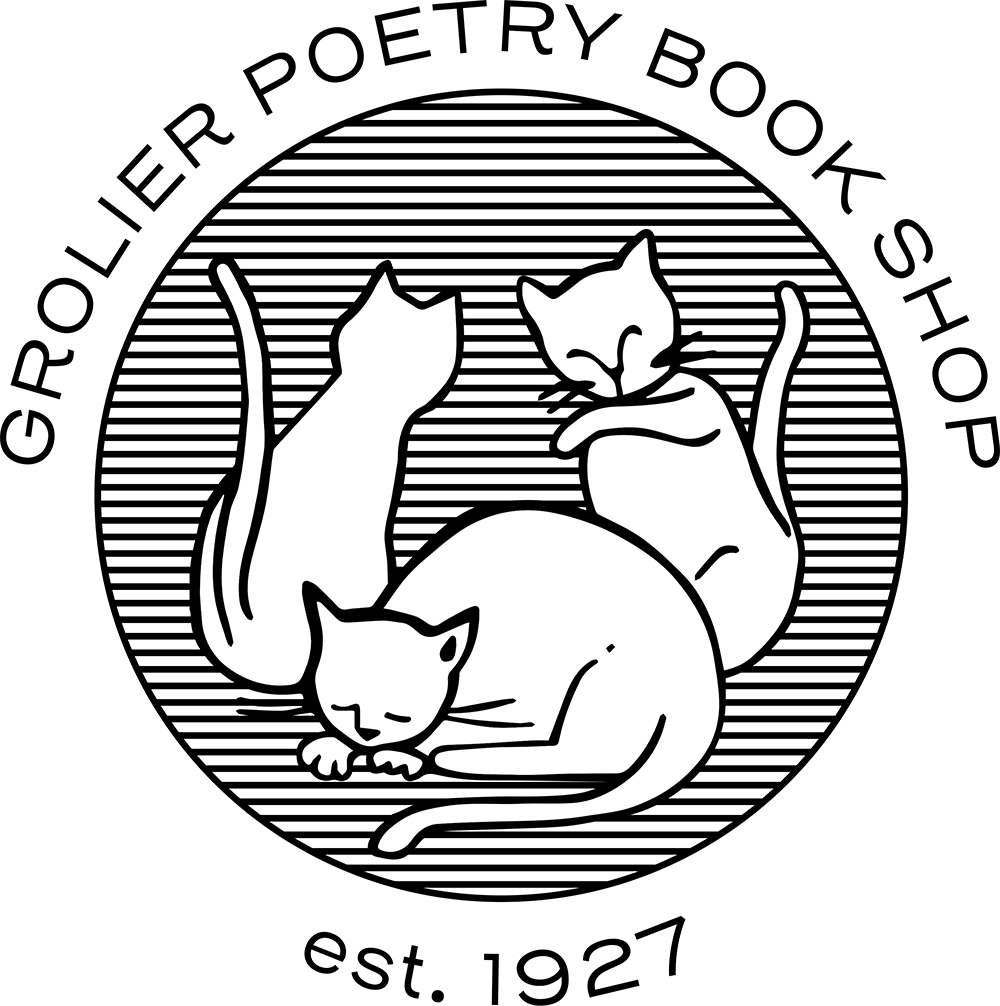 Image 1 of
Image 1 of

The Wild Language of Deer By Susan Glass
"The poems in Susan Glass’ The Wild Language of Deer are earthy and musical with whimsical surprises everywhere: “She’s all melody and sighs at this work”; “swallows squeak in the pussy willow tree”; “I was a girl / a spry and quivering column of air….” Woven through the fresh, vivid imagery is the emotionally honest story of a young blind girl’s growing up to become an intrepid woman; the parents who shaped her; and the earth, sky, and birds that sustain her. This book, with its exquisite woodcuts and a poem in Braille translation, will subtly reorient your relationship to our world."— Alison Luterman, author of In the Time of Great Fires"
One step into the stilled silence of Susan Glass' The Wild Language of Deer, and we are aware how acutely the next step might break us. Of course, there is no erasing the footfall or unhearing the snap ... of these poems "that will never domesticate, that welcome / this wild language back…" And so we must change, embrace our lives as these poems do with the ever-shifting sounds and textures of wrens and flickers, lost flutes and sighing cellos, half-lit pepper trees and fogged potato fields. Glass' poems map a journey from the child's "wild light before cataracts" to "the long dusk our waking is," the speaker's arrival a kind of absence, a "dream, with beautiful alarm / of those I left behind." But along the way Glass reminds us how the senses round into words, how sound and touch work themselves into language—and how they change us, sometimes painfully, but also profoundly, magnificently so...."— Nils Michals, author of Gembox and Come Down to Earth
"The poems in Susan Glass’ The Wild Language of Deer are earthy and musical with whimsical surprises everywhere: “She’s all melody and sighs at this work”; “swallows squeak in the pussy willow tree”; “I was a girl / a spry and quivering column of air….” Woven through the fresh, vivid imagery is the emotionally honest story of a young blind girl’s growing up to become an intrepid woman; the parents who shaped her; and the earth, sky, and birds that sustain her. This book, with its exquisite woodcuts and a poem in Braille translation, will subtly reorient your relationship to our world."— Alison Luterman, author of In the Time of Great Fires"
One step into the stilled silence of Susan Glass' The Wild Language of Deer, and we are aware how acutely the next step might break us. Of course, there is no erasing the footfall or unhearing the snap ... of these poems "that will never domesticate, that welcome / this wild language back…" And so we must change, embrace our lives as these poems do with the ever-shifting sounds and textures of wrens and flickers, lost flutes and sighing cellos, half-lit pepper trees and fogged potato fields. Glass' poems map a journey from the child's "wild light before cataracts" to "the long dusk our waking is," the speaker's arrival a kind of absence, a "dream, with beautiful alarm / of those I left behind." But along the way Glass reminds us how the senses round into words, how sound and touch work themselves into language—and how they change us, sometimes painfully, but also profoundly, magnificently so...."— Nils Michals, author of Gembox and Come Down to Earth
"The poems in Susan Glass’ The Wild Language of Deer are earthy and musical with whimsical surprises everywhere: “She’s all melody and sighs at this work”; “swallows squeak in the pussy willow tree”; “I was a girl / a spry and quivering column of air….” Woven through the fresh, vivid imagery is the emotionally honest story of a young blind girl’s growing up to become an intrepid woman; the parents who shaped her; and the earth, sky, and birds that sustain her. This book, with its exquisite woodcuts and a poem in Braille translation, will subtly reorient your relationship to our world."— Alison Luterman, author of In the Time of Great Fires"
One step into the stilled silence of Susan Glass' The Wild Language of Deer, and we are aware how acutely the next step might break us. Of course, there is no erasing the footfall or unhearing the snap ... of these poems "that will never domesticate, that welcome / this wild language back…" And so we must change, embrace our lives as these poems do with the ever-shifting sounds and textures of wrens and flickers, lost flutes and sighing cellos, half-lit pepper trees and fogged potato fields. Glass' poems map a journey from the child's "wild light before cataracts" to "the long dusk our waking is," the speaker's arrival a kind of absence, a "dream, with beautiful alarm / of those I left behind." But along the way Glass reminds us how the senses round into words, how sound and touch work themselves into language—and how they change us, sometimes painfully, but also profoundly, magnificently so...."— Nils Michals, author of Gembox and Come Down to Earth
